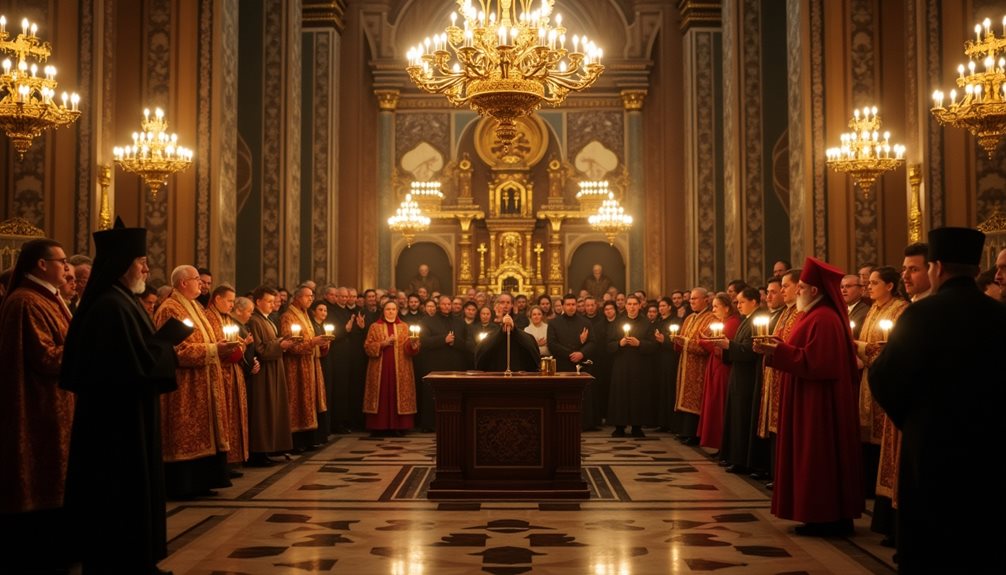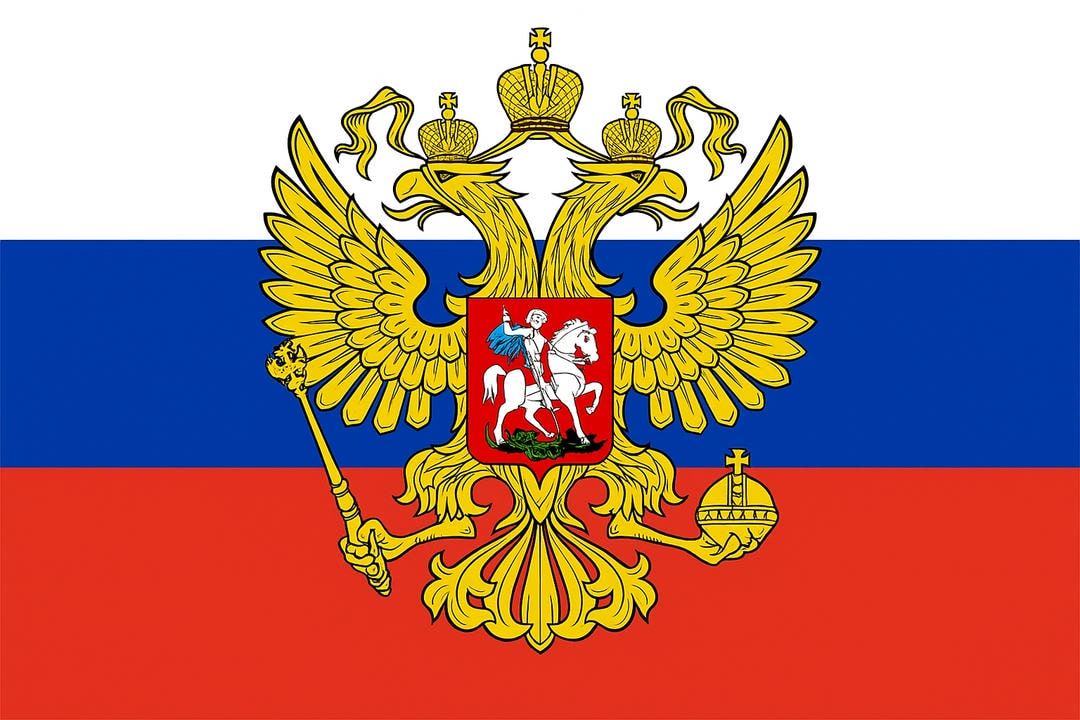Obtaining a Russian visa is a critical step for Americans planning to visit Russia. The process involves maneuvering through various visa categories, each with distinct requirements and documentation. Understanding the differences between tourist, business, and humanitarian visas can prevent delays and complications. Additionally, applicants must be aware of where and how to apply, including options beyond consular offices. These factors make preparation essential for a smooth application experience, setting the stage for further exploration of the details involved.
Essential Russian Visa Information
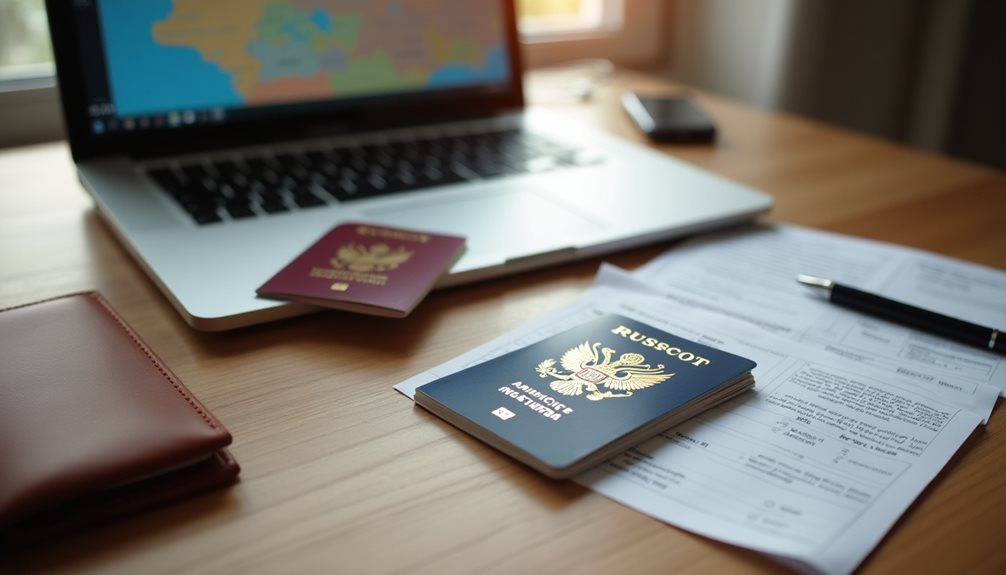
Acquiring a Russian visa is a crucial step for American travelers planning a visit to Russia. Russian law requires all U.S. citizens to obtain the appropriate visa before arrival, as there are no provisions for obtaining a visa upon entry. Having the correct visa guarantees a smooth and legal passage through Russian borders and ensures that your travel plans proceed without interruption.
The visa serves not only as your official entry document but also clearly defines the purpose and duration of your stay—be it tourism, business, study, or other activities. Applying for the right type of visa allows you to explore Russia’s rich history, vibrant culture, and stunning landscapes with complete peace of mind.
Navigating the visa application process is straightforward with proper preparation. Applicants typically need an official invitation (known as a “visa support” document), a completed application form, confirmation of accommodations, and sometimes proof of medical insurance. By carefully following the guidelines provided by the Russian consulate and double-checking all documents for accuracy, travelers can avoid unnecessary delays and look forward to receiving their approved visa on time.
Once in Russia, travelers will appreciate the country’s efficient registration system, which helps authorities ensure a welcoming environment for international guests. Hotels and hostels usually handle registration for visitors, making it a hassle-free process. Those staying in private accommodations can easily complete registration with the help of their hosts.
Respecting Russian customs and etiquette adds another layer of enjoyment to your journey. Russians are known for their hospitality and warmth, often welcoming guests with traditional foods and engaging conversation. Learning a few basic Russian phrases and observing local customs—such as removing shoes when entering homes—will be met with appreciation and open doors to meaningful cultural exchanges.
By securing the correct visa and embracing Russian hospitality, American travelers unlock the full potential of their adventures in Russia. This thorough preparation not only ensures compliance with all regulations but also sets the stage for an unforgettable, positive experience in one of the world’s most dynamic destinations.
Types of Russian Visas for U.S. Travelers
Russia issues a variety of visa categories for U.S. citizens, each designed for a specific type of visit. It’s important to select the correct visa based on your travel plans, as using the wrong visa type may result in denial of entry or complications during your stay.
| Visa Type | Purpose | Typical Validity |
|---|---|---|
| Tourist | Short-term leisure travel, sightseeing | Up to 30 days (single/double entry); up to 3 years (multiple entry, for U.S. citizens only) |
| Business | Meetings, conferences, negotiations | Up to 1 year (single/double/multiple entry); up to 3 years for frequent business travelers |
| Humanitarian | Cultural, scientific, religious, sports events | Up to 1 year |
| Private | Visiting family and friends | Up to 90 days |
| Work | Employment in Russia | Valid for length of contract (often up to 3 years) |
| Student | Participation in educational programs | Valid for duration of study |
| Transit | Traveling through Russia en route elsewhere | Up to 72 hours |
Key Visa Types Explained
Tourist Visa
- Purpose: This is the most common visa for short-term travel, such as sightseeing or vacationing.
- Validity: Typically issued for up to 30 days; single or double entry is standard. However, U.S. citizens may be eligible for a multiple-entry tourist visa valid for up to three years.
- Requirements: You’ll need a tourist invitation letter (voucher) from a Russian travel agency or hotel and proof of accommodation.
Business Visa
- Purpose: Intended for attending meetings, negotiations, or exploring business opportunities.
- Validity: Issued for periods of up to one year, with single, double, or multiple entries. Frequent business travelers can obtain multiple-entry visas valid for up to three years.
- Requirements: An official invitation from a Russian company or host organization is required.
Humanitarian Visa
- Purpose: For participation in cultural exchanges, scientific research, religious activities, or sports events.
- Validity: Generally valid for up to one year.
- Requirements: Invitation from the hosting organization in Russia documenting the purpose of your visit.
Private Visa
- Purpose: For visiting relatives or friends who reside in Russia.
- Validity: Usually up to 90 days.
- Requirements: A formal invitation from your Russian host, processed through the local office of the Ministry of Internal Affairs.
Work Visa
- Purpose: For those with job offers in Russia.
- Validity: Typically matches the duration of your employment contract, often up to three years.
- Requirements: Sponsorship and invitation from your Russian employer; work permit or job contract is also necessary.
Student Visa
- Purpose: For those enrolling in Russian universities or academic programs.
- Validity: Covers the entire period of study as indicated by the educational institution.
- Requirements: Official invitation from the Russian educational institution.
Transit Visa
- Purpose: For travelers passing through Russia en route to another country.
- Validity: Usually up to 72 hours.
- Requirements: Proof of onward travel (such as airline tickets) and a valid visa for your next destination (if required).
Important Notes
- No Visa-on-Arrival: U.S. citizens cannot obtain a visa on arrival in Russia. All visas must be secured before departure.
- No E-Visa (as of 2024): The electronic visa system is not available to U.S. citizens at this time.
- Application Process: All visa applications require you to submit supporting documents (such as invitations, proof of accommodation, itinerary) and must be lodged at a Russian consulate or authorized visa center.
- Registration Requirement: After arrival in Russia, travelers are generally required to register their visa with the local authorities within seven business days.
Choosing the right visa and preparing all necessary documents is crucial for a smooth entry and stay in Russia. Always check the latest requirements before you apply, as Russian visa rules can change with little notice.
Step-by-Step Russian Visa Application Process
A. Determine Visa Type
Select the visa that aligns with the main reason for your trip to Russia. Each visa type has specific requirements and permitted activities. Applying for the wrong type can lead to delays or even denial.
B. Gather Required Documents
Prepare a comprehensive set of documents. Missing paperwork is one of the most common reasons for processing delays.
General Checklist:
- U.S. Passport: Must be valid for at least six months beyond your planned departure from Russia and contain at least two blank visa pages. Damaged or nearly full passports may be rejected.
- Visa Application Form: Complete the electronic form at visa.kdmid.ru. Print, sign, and date it before submission.
- Photographs: Recent color passport photos (35×45 mm) on a plain light background. No hats, glasses, or head coverings unless worn daily for religious purposes.
- Supporting Documents (varies by visa type):
- Tourist: Official invitation/voucher from a registered Russian travel agency, confirmed hotel reservations, and detailed travel itinerary.
- Business: Official invitation issued by the Russian Ministry of Internal Affairs or an authorized company; business correspondence may also be required.
- Private: Invitation letter processed through the Russian Ministry of Internal Affairs by your host in Russia.
- Student/Work: Official letter of acceptance or contract from the Russian educational institution or employer.
- Transit: Proof of onward travel—confirmed tickets and visas for the next country, if applicable.
Check with the relevant consulate or visa center for any additional requirements specific to your circumstances.
C. Obtain Medical Insurance
Travel medical insurance is highly recommended and often mandatory. The policy should:
- Cover emergency medical care and repatriation.
- Be valid for the entire duration of your intended stay in Russia.
- List Russia as a covered territory.
Some consulates require a copy of your insurance policy with your application. Double-check whether your current health insurance provides international coverage, as many U.S. plans do not.
D. Submit Application
Applications are generally accepted at Russian consulates in Washington D.C., New York, and Houston, or through officially authorized Russian Visa Centers. Applications are typically submitted in person, though some centers offer mail-in options. Each location may have specific procedures, appointment requirements, and operating hours—review their website ahead of time for up-to-date information.
E. Pay the Consular Fee
The standard fee for most single-entry Russian visas is $185. Payment methods vary by location (credit card, money order, etc.), so confirm accepted forms before arriving. Expedited processing is available in some cases for an additional fee—typically doubling the standard rate.
Fees are generally non-refundable, regardless of approval status.
![]()
F. Track Application Status
After submission, you’ll receive a tracking number or reference code. Use this to check your application’s progress through:
- The official consulate or visa center website.
- Email notifications (if offered).
- Direct phone inquiries for urgent updates.
Processing times range from four business days (expedited) to up to twenty calendar days (standard), depending on the visa type and consular workload.
Important Document Preparation Tips
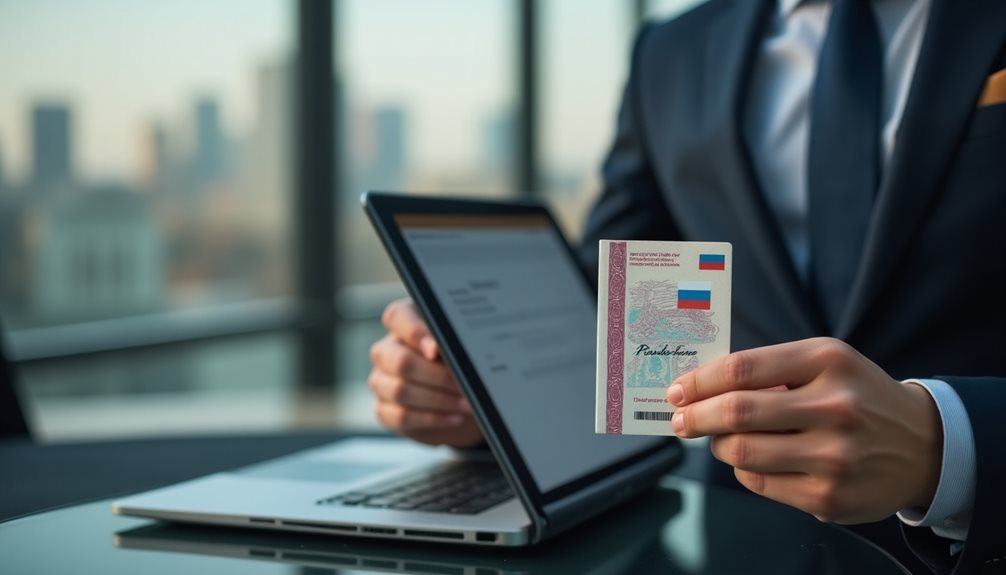 When planning travel to Russia,
When planning travel to Russia,
- Fill Out Forms Accurately:
Double-check every entry on your visa application and related forms. Ensure all information is complete, accurate, and matches the details in your passport. Applications with missing signatures, unchecked boxes, or inconsistent data are frequently returned for correction. - Ensure Clarity of Photocopies:
All photocopies—especially of your passport’s biographical page—must be clear and easy to read. Blurry, faded, or cropped copies may be rejected. Use high-resolution settings when scanning or copying, and print on standard white paper. - Consistent Personal Details:
The spelling of your name, date of birth, and other identifying details must appear exactly the same across all documents. This includes your invitation letter, hotel bookings, insurance policy, and visa application form. Even minor differences (such as a missing middle name or a typo) can lead to delays or denial. - Organize Documents in Correct Order:
Each consulate or visa center may require documents to be arranged in a specific sequence (e.g., application form first, followed by photos, passport copy, supporting documents). Review the submission guidelines on the official website and organize your packet accordingly to speed up processing. - Review for Completeness:
The most common reason for processing delays or rejections is incomplete or incorrect paperwork. Before submitting, carefully review each document against the consulate’s checklist. Missing signatures, outdated forms, or incomplete supporting documents almost always result in your application being returned.
Taking time to prepare your documents carefully will help avoid unnecessary complications and improve your chances of a smooth visa approval process.
Special Considerations
Former Soviet citizens, or those born in the USSR, may need to provide extra documentation verifying their change of citizenship and current legal status. This can include a copy of your U.S. naturalization certificate, proof of renunciation of prior citizenship, or other historical records, depending on the consulate’s requirements.
U.S. citizens benefit from the option to apply for three-year multiple-entry visas for both tourism and business, which allow stays of up to 180 days per visit. This provides significantly more flexibility compared to what many other countries offer. Be sure to review visa conditions closely, as overstaying can lead to fines or future entry bans.
Children require their own visas to travel to Russia. A copy of the child’s birth certificate is needed, and if traveling with only one parent or without either legal guardian, notarized parental consent will usually be required. Consulates may have specific forms or request the consent be apostilled or translated, so check the latest guidance before applying.
![]()
 Travel Insurance: Strongly Recommended
Travel Insurance: Strongly Recommended
Comprehensive travel medical insurance is advised for trips to Russia, even if it isn’t always mandatory. Russia’s healthcare system is modern and generally accessible, but having insurance guarantees you can receive necessary treatment without facing high out-of-pocket costs. Some consulates may request proof of insurance during the visa process, so having a policy in place also helps ensure your application goes smoothly and provides peace of mind while abroad.
![]()
Processing Time & Best Practices
- Standard Processing: Russian visa applications are typically processed within approximately 10 business days. This timeline allows consular officers to thoroughly review your documents and ensure all requirements are met.
- Expedited Processing: For urgent travel needs, expedited processing is available and can be completed in as little as 3 business days. Please note that higher fees apply for this service, but it is an excellent option for travelers with tight schedules or unexpected trips.
- Apply Early: To avoid unnecessary stress and ensure you have your visa well in advance, submit your application at least one month before your intended travel date. Early application provides a buffer for any unforeseen delays or additional document requests.
- Stay Connected: Keep the contact information of the Russian embassy or consulate where you applied readily accessible. Should you need assistance or have any questions during preparation or while in Russia, the consular staff is highly professional and eager to support foreign visitors.
- Prepare for Success: Russia welcomes travelers who are well-prepared and organized. By following these best practices, you set yourself up for a smooth application process and a memorable visit.
![]()
![]()
Common Mistakes to Avoid
- Incomplete Forms or Missing Signatures: Double-check each section of your application form before submission. All fields must be filled out completely, and required signatures must be present to avoid processing delays.
- Mismatched Details: Ensure that every name and detail on your application exactly matches the information in your passport. Even minor discrepancies can result in processing issues or application rejection.
- Missing Supporting Documents: Review the list of required documents carefully. Typical supporting materials may include an invitation letter, travel itinerary, proof of accommodation, valid passport, and passport-sized photos. Submitting all necessary documents at once will speed up the process.
- Last-Minute Applications: Avoid waiting until the last minute to apply. Consulates appreciate applicants who plan ahead, allowing them to provide prompt and efficient service.
- Positive Preparation: Attention to detail and early preparation are highly valued by Russian consular staff, who are known for their courteous and professional demeanor. Complying with all requirements not only speeds up your application but also fosters goodwill.
With careful planning and adherence to guidelines, your Russian visa application process can be straightforward and rewarding—laying the foundation for an enjoyable travel experience in Russia.
Why Visit Russia?
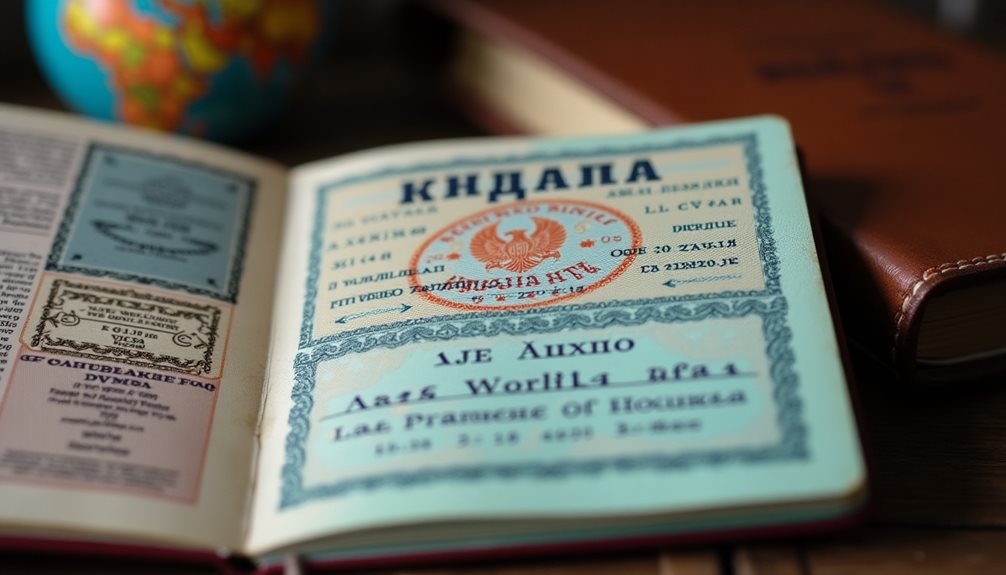
Russia stands out as one of the world’s most captivating destinations, offering a blend of history, culture, and natural wonders on an epic scale.
Cultural Riches:
Russia’s cultural legacy is immense. Visitors can admire masterpieces in the State Hermitage Museum in St. Petersburg—one of the largest and oldest museums in the world—or attend a world-class ballet at the Bolshoi Theatre in Moscow. Russian literature, from Tolstoy to Dostoevsky, as well as classical music by Tchaikovsky and Rachmaninoff, continue to inspire millions.
Architectural Marvels:
The country’s architecture tells centuries-old stories. The colorful domes of Moscow’s St. Basil’s Cathedral, the grandeur of the Kremlin, and the opulent palaces of St. Petersburg like Peterhof and Catherine Palace are just a few highlights. Each city boasts a unique blend of European and Asian influences visible in everything from Orthodox churches to Soviet-era monuments.
Natural Wonders:
Russia’s landscapes are vast and varied. Lake Baikal, the world’s deepest freshwater lake, is famed for its clear waters and endemic wildlife. The Kamchatka Peninsula offers volcanic peaks, geysers, and opportunities to see brown bears and eagles. The endless taiga forests, the rolling Ural Mountains, and the remote Siberian tundra present unparalleled opportunities for adventure and ecotourism.
Vibrant Cities:
Moscow pulses with energy: its metro stations are architectural masterpieces, and its nightlife is legendary. St. Petersburg charms with canals reminiscent of Venice, white nights in summer, and a thriving arts scene. Kazan blends Russian and Tatar cultures, while cities like Sochi offer Black Sea beaches and access to the Caucasus Mountains.
Warm Hospitality:
Despite stereotypes, Russians are known for their warmth and generosity toward guests who approach with respect for local customs and traditions. Sharing food, offering tea, or telling stories—hospitality is deeply rooted in Russian culture.
Accessible Travel:
The Russian government has made travel easier for visitors by streamlining visa processes and offering multi-year visas to citizens of many countries. Consular services are efficient, with clear guidelines designed to facilitate legitimate tourism and business visits.
![]()
A Destination Like No Other
Whether you’re captivated by centuries-old history, fascinated by world-class art, inspired by breathtaking nature, or simply curious about the sheer expanse and diversity of the country, Russia stands ready to deliver an experience that is truly unique. Few places on earth combine such a vast array of cultural treasures, architectural wonders, and natural landscapes within a single nation.
Travelers can wander through imperial palaces glittering with gold leaf, marvel at Soviet-era engineering, or lose themselves in the timeless beauty of Russian folk traditions and Orthodox rituals. The nation’s dramatic geography—from birch forests stretching to the horizon to volcanic peaks steaming above wild rivers—offers adventures for every taste, whether you seek the bustle of vibrant cities or the peace of untouched wilderness.
Every journey to Russia reveals new contrasts and surprises: ultra-modern skyscrapers rising beside medieval fortresses, bustling markets filled with local delicacies, and the quiet hospitality of a country inn. Each region contributes its own flavors, dialects, and customs, creating a rich tapestry that rewards both first-time visitors and seasoned explorers.
In Russia, you don’t just visit landmarks—you immerse yourself in stories that span empires, revolutions, and artistic revolutions. With its generous visa policies and growing accessibility, there has never been a better time to discover what makes this country truly extraordinary. For those seeking depth, beauty, and adventure on a grand scale, Russia is not just a destination—it’s an unforgettable journey.


